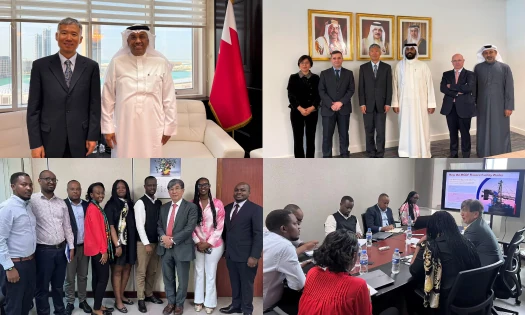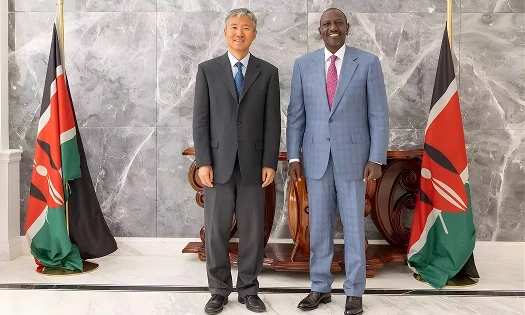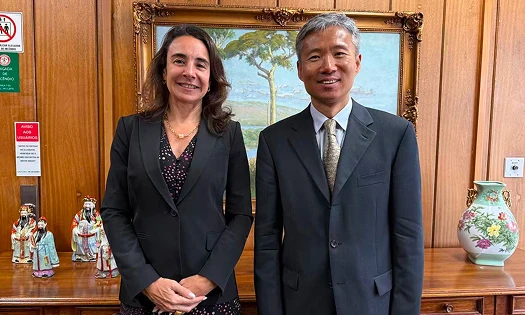Innovations in energy connectivity infrastructure and project financing needed to meet climate change mitigation targets in developing countries were highlighted during the launch of the virtual Workshop Series on Innovations in Renewable Energy Technology and Connectivity on 10 April, cohosted by the Multilateral Cooperation Center for Development Finance (MCDF) and partners.
The other organizers of the three-part series include Saudi Arabia’s Ministry of Finance, the Islamic Development Bank, and Asian Development Bank (ADB).
To watch the workshop one introductory remarks, click here
To see the full session and its presentations, visit MCDF’s digital platform, JIGSAW
The first workshop of the series featured a panel of experts from government, multilateral development banks (MDBs), and the renewable energy sector. They underscored the critical role of connectivity infrastructure in renewable energy transmission from production locations, including those in remote areas, to large domestic and cross-border consumer markets. The panel went on to discuss the cross-border renewable energy infrastructure delivery landscape in developing countries and regions and spotlighted examples of progress.
Saudi Arabia’s Assistant Deputy Minister of Finance, Dr. Turki Abalala, described the country’s commitment to achieving net-zero carbon emissions by 2060 through a circular, private sector-based approach. He also noted Saudi Arabia’s emphasis on renewable energy and transmission infrastructure investment to support its broader sustainable development.
The Saudi Electricity Company’s (SEC) Mr. Hussein M. Alghawazi and Mr. Ali Al-Rumaih presented the company’s work on smart meters and smart networks which has rapidly expanded its grid automation, improved service delivery, and enhanced energy security. SEC’s Eng. Meshal Al-Mutairi detailed the company’s renewable energy management system innovations.
The system includes a forecast management tool to model changes in near-future energy generation, a renewable energy dispatch tool to control variable energy generation sources, and a system to assess security and performance at different renewable penetration levels.
Ms. Hyunjung Lee, Senior Energy Specialist at ADB, overviewed technical, financial, and political challenges and innovative financing models to advance Association of Southeast Asian Nations (ASEAN) power grid integration. Mr. Toshifumi Kazaoka, Senior Investment Officer at the Asian Infrastructure Investment Bank, detailed Lao PDR’s – and the region’s – first wind power project that will export electricity to Viet Nam and is being cofinanced by MDBs, public funders, and private banks.
Dr. Yu Xiaoxiao of the Global Energy Interconnection Development and Cooperation Organization described its research on an index that tracks domestic and regional electricity development performance. The index covers electricity production, consumption, and allocation, and gauges safety, reliability, green development, economic efficiency, technology, policies, and market dynamics.
“Further breakthroughs in renewable energy growth required to achieve net-zero carbon emissions by 2050 depend enormously on investment in connectivity infrastructure,” said Dr. Ede Ijjasz, Senior Advisor to MCDF’s CEO and the panel moderator. “Understanding innovative renewable energy technologies and financing approaches is an essential building block of successful project implementation,” he concluded.
The second session in the workshop series, on solar technology innovation, will be held on 14 May. The third and final session will focus on innovations in renewable energy storage and take place on 2 June.
Contact
David Hendrickson
Senior Communications Officer
Mobile: +86 185 0114 6758
david.hendrickson@themcdf.org







